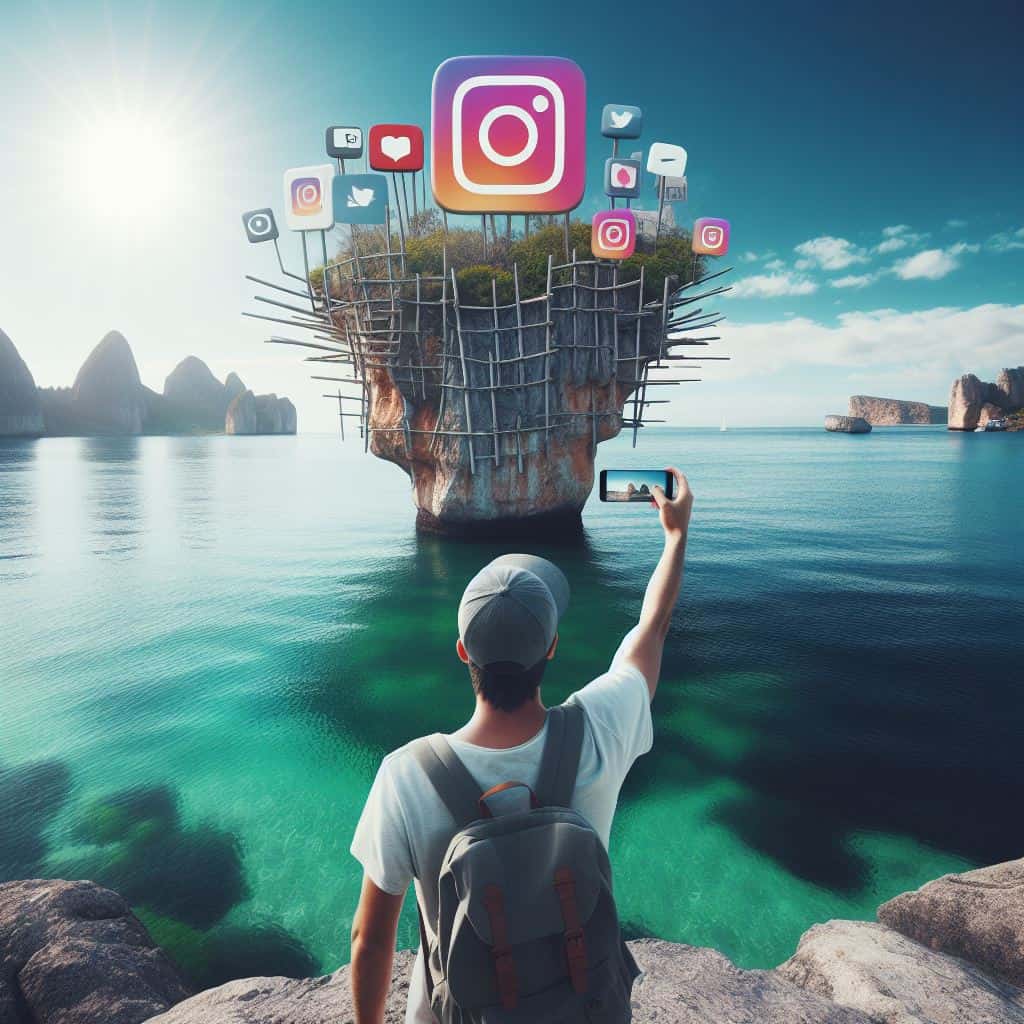Online communication is nearly instant communication, and it has led to a strange amnesia about the past. This forgetting is so fast, it even affects how we approach our own experiences.
The tools involved could enable us to profit from our life experiences more, but the ways social media especially and online living in general lead us to approach them, they diminish our lives.
Shots and Stories, Sure – But Life Experiences?
I’m sure you have seen the usual Instagram-influenced travel action:
People looking for the right angle for the perfect shot for their “been there, done that”-selfie in all the same spots.
Foods that don’t have to taste good just as long as they will look good in an Instagram post.
Scary perspectives from mountain ridges for sports shorts and Tiktok videos.
I’m sure you have also encountered the typical complaints:
These people don’t even notice where they are, don’t really take in what they see, too busy with their self-presentation. It had gone to the point where professional influencers faked their entire backdrop.
Life, Mediated
There is something to be said for the argument that we should actually experience what we are experiencing.
Life does happen in all the instants that make up our experiences, and they may be all the deeper the more we are present for them.
Disappearing behind the lens of a smartphone or a camera puts a – literal – screen between ourselves and the world that we are seeing in that moment.
When we should be enjoying a meal by savoring it and engaging with the people with whom we share it, smartphones are a disturbance.
Spending a life experience worrying about how to present it on social media will take you out of the moment, for sure, and diminish your involvement in it.
That said, I do not see the only, probably not even the main, problem in that.
Documentation Is Involvement
We humans have been documenting something of our life experiences for long, and the more accessible and immediately usable different media have become, the more we have used them.
Vacation snapshots have been around ever since cameras for them have been affordable enough – and “come over and watch the slideshow of our last vacation’s photos” is a trope for a reason.
Practicing photography, even if it is just deciding on a good angle for yourself and the famous sight behind you, can also mean a deeper engagement with the world around you.
Participating in the collective “been there, done that” is a deeply human thing speaking to a desire to be a part of the human family; it isn’t all bad but a sign of shared humanity.
You should decide when you want to be in the moment, when you want to savor that food in front of you and that company around you – but you can also decide that and how you want to document that all.
Making Experiences More Than Fun
What I find the truly sad insta-ization of our experience is that we have a chance to make our life experiences more than instant Type 1-fun, but we are driven to forget about doing that.
The typology of fun reminds us that things aren’t always fun in the moment, these are just the Type 1-fun experiences: You enjoy what you are doing, while you are doing it.
Then there are also Type 2-fun experiences: They are not fun while you do them, they are exhausting, challenging, difficult… but thinking back on them later, they were absolutely worthwhile experiences to remember, to have done and gained the feeling of accomplishment, of learning and growth.
Our digital media and online communication drives us into Type 1-fun, and often disengages us from even that.
The only “later” they know tends to be when we check back to see if our all-important selfies that we just had to post in the instant got the likes we think they should have deserved.
Then we forget about it all. At best, we wistfully look through our feed, our photo roll, and wonder momentarily what to make of it all.
It all, always, only seems to matter the instant it happens, however. Everything is transient, there and gone, but not even that in a way that would make us think about the world more deeply. Everything is instantaneous and superficial, and that’s it.
Things that happened yesterday are gone and forgotten.
Looking Back, Learning – Living More Deeply
We could, however – and that is the sad part – approach these things differently, too.
If only we made it a habit, a personal practice of reflection or a social normality, we could also take time to look back at what we did, where we went, what the experiences meant to us and what they involved.
We could reflect on things, learn more about them, and then share all of that: The fun of the instant, and the later learnings that create meaningful experiences.
This would take our documentation of our lives from mere selfies to levers for learning: How did that place become so well-known that I – along with so many others – felt a need to visit it? What is its history?
It would also make our lives more of the hero’s journeys that we should perhaps think of them as being (because research has shown that it is a good approach to giving life meaning).
The hero follows a calling, accepts a challenge, and comes back from it changed in meaningful ways.
Wouldn’t that be a way to approach life and all it entails that’s better than just superficial glamour shots, vacation selfies or shopping hauls?


Leave a Reply